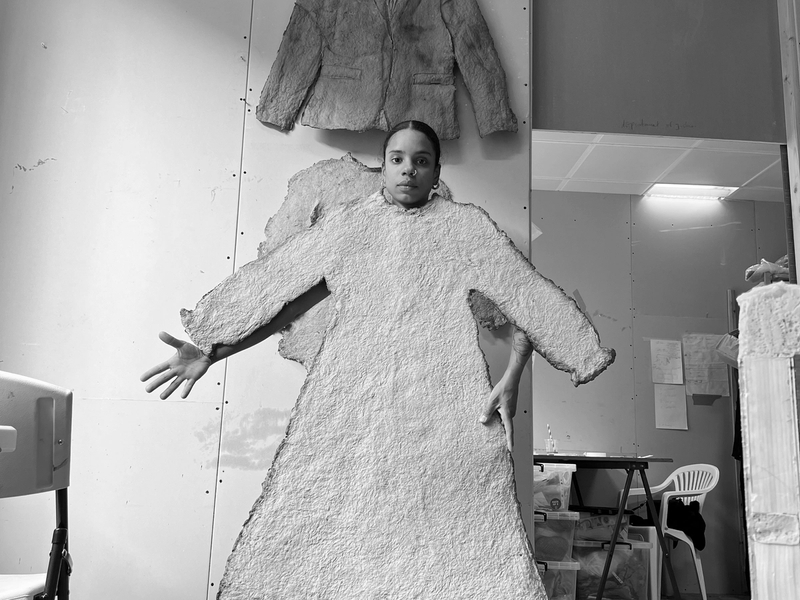“Dust as an Accidental Gift” looks forensically at the ever-present dust in Luanda to reflect on the city’s socio-economic, political, cultural, and built landscape. In Luanda, the ubiquitous dust becomes a stable commodity through the many economic activities focused on erasing its traces. Angola’s colonial past imbues dust as something that both upholds livelihoods and enforces class division in the urban environment. The formally built and paved ‘cement city’ near the water — Luanda ‘Baixa’ — was occupied by white Portuguese settlers during colonial rule. In contrast, Angolan natives lived inland, in mostly informal neighbourhoods ‘paved by the dust.’ This urban condition informed the semiotic borders that prevented class mobility for native Angolan inhabitants.
The assemblages of ephemeral objects, made from discarded cardboard and starch, and selected for their essential roles in the daily life of a Luandan, form an uneven walkway that defines the installation as a passage. This configuration, referencing the entrance to Luanda’s Kikolo Market, prompts visitors to question their ability to navigate the non-paved, the non-space, and the uninhabitable. The exhibit contextualises the experience of navigating between soft and hard surfaces, relatable to ‘near-south’ geographies as defined by urbanist Abdoumaliq Simone.
The installation is interested in the dust as an accidental gift for the city, using this narrative to think about how something seemingly unwanted shapes continual urban and socio-economic rituals.
